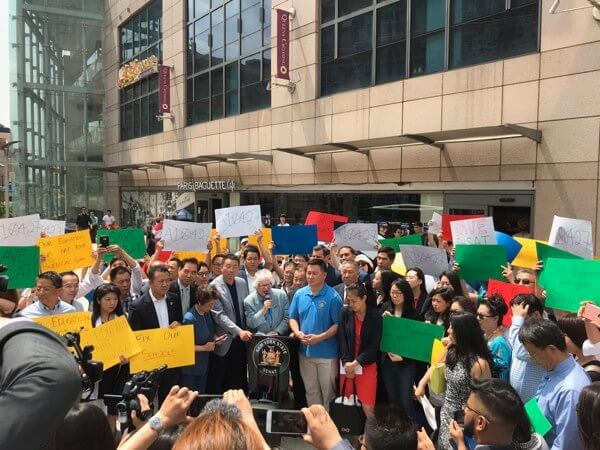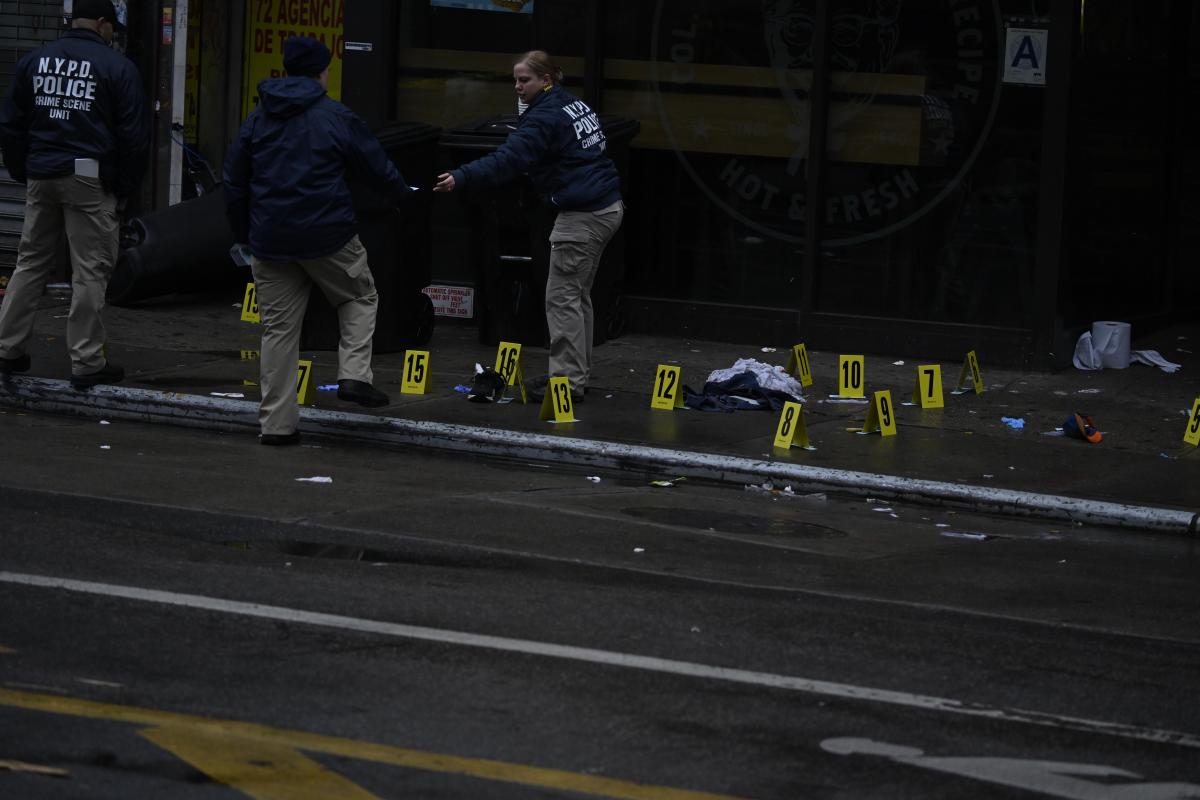By Carlotta Mohamed
State Sen. Toby Ann Stavisky (D-Flushing) joined elected officials and community leaders last week to rally against Mayor Bill de Blasio’s proposal to dismantle the Specialized High School Admittance Test and failure to include input from the Asian-American and Pacific Islander community.
Area government leaders, the Asian-American community and educational sectors, among others, gathered at Queens Crossing at the corner of 138th Street and 39th Avenue in Flushing June 8 to denounce the mayor’s new requirements for admittance to New York City’s specialized high schools in an attempt to increase diversity.
The two-part plan includes expanding the Discovery Program to increase enrollment of low-income students at specialized high schools and eliminating the use of the admissions test. Schools Chancellor Richard Carranza’s recent comments about the Asian-American student population, saying they “own the process,” triggered strong opposition in the Asian American community.
Stavisky said Carranza attempted to “pit one group against another,” insulting the Asian American community.
“That is disgraceful, dangerous and divisive,” Stavisky said. “The best way to improve diversity and preserve academic integrity is to increase gifted and talented programs, improve outreach to all communities, provide SHSAT exams and free test preparation and create additional specialized high schools.”
State Assemblyman Charles Barron (D-Brooklyn), a sponsor of the bill, said it will increase the opportunities of Black and Latin students to 45 percent.
“Specialized high schools across the country have a 30-40 percent enrollment of Black and Latino students,” said Barron. “We, in NYC must end the single-test criteria for admissions into the specialized high schools in NYC. It renders 9 percent for black and Latino students and that’s unconscionable and unacceptable.”
On June 6, the Assembly Education Committee approved the mayor’s bill, with U.S. Rep. Grace Meng (D-Flushing) calling the vote “disappointing.”
“The mayor could’ve requested more resources from Albany for every single New York City elementary, middle, and high school, or he could’ve chosen to address the broader systemic segregation in our city,” said Meng.
Only 4.1 percent of offers at the specialized high schools that require an entry exam went to black students, while 6.3 percent went to Hispanic students, according to the city Department of Education. Together, those students make up about 70 percent of city students. The vast majority of eighth-graders who received admissions offers were white or Asian. More than 28,000 took the admissions test, and a total of 5,067 offers were made. Based on this year’s admission results, the incoming freshman class at Stuyvesant High School only has 10 African-American students in a class of more than 900.
City Councilman Peter Koo (D-Flushing) said students accepted to the specialized high schools “earned their seat at the table” with hard work and dedication.
“If this administration were truly concerned with a fair approach to diversity, it would start by making sure underrepresented schools are preparing their students for a higher education,” Koo said.
The bill must still clear many difficult hurdles before it becomes law, including approval from the Assembly, Senate, and governor.
State Assemblyman David Weprin (D-Fresh Meadows, Richmond Hill), who opposes the legislation, said he would remove his co-sponsorship of the “misguided bill” that was changed without consulting the bill’s co-sponsors or multi-sponsors, if it comes to the floor for a vote.
“I would strongly prefer changes that allow for the admissions process to look at different measures of student merit, including a merit based exam and a student’s GPA, as well as proposals that provide students in underrepresented communities expanded access to free test prep and other supports,” Weprin said.
Reach reporter Carlotta Mohamed by e-mail at cmoha































